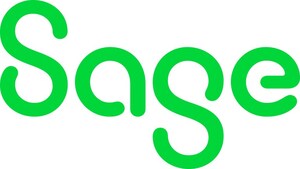
NEW YORK, April 16, 2013 /PRNewswire/ -- Cash balance (CB) plans are the fastest growing of the defined benefit pension plans and could overtake 401(k) plans within the next few years, according to researchers at Sage Advisory Services, a leading Texas-based investment management firm. While many small to mid-sized businesses are seeing the benefits of the flexibility, transparency, and employee satisfaction offered by these newly-regulated plans, management of the assets continues to present challenges.
CB plans are hybrids between a defined benefit (DB) and a defined contribution (DC) plan creating a hypothetical account for each employee to which the plan sponsor contributes based on a set interest crediting rate (ICR) and a percentage of the employee's pay. This produces a plan that is easy to understand and one where employees can rollover the entire account balance at any time after termination, without having to wait until retirement.
Introduced in the early 1980s, CB plans have proved popular, especially in the last decade. According to the DOL, there were 7,600 individual CB plans in 2010 with $800 billion in assets (compared to 1,300 plans with $426 million in assets in 2000). A plan's investment strategy depends strongly on the characteristics of the plan sponsor and the demographics of the plan participants. "A DB-like liability-matching solution for most CB plans, i.e., something akin to liability driven investing, is almost impossible; however, a traditional total return strategy is not a perfect solution either," said Alex Pekker and Meghan Elwell, authors of the report. Policies can differ greatly depending on the risk tolerance from private companies to partnerships, current ICRs, and variability of cash flows.
Pekker and Elwell advocate a logical "common-sense approach" to cash balance liability matching where liability is simply the sum of the participants' account balances and illustrate investment scenarios for plans with different ICRs such as a fixed rates, bond yields, or index returns .
When investing for cash balance plans, investment managers should employ several different strategies, considering the risk preferences of the plan sponsor, the ICR, and the probability of liquidity events in order to maximize return for investments by clients.
About Sage:
Sage is an independent investment management firm that serves the institutional and private client marketplace with traditional fixed-income asset management, a variety of global tactical ETF strategies and asset/liability analytical services.
SOURCE Sage






Share this article